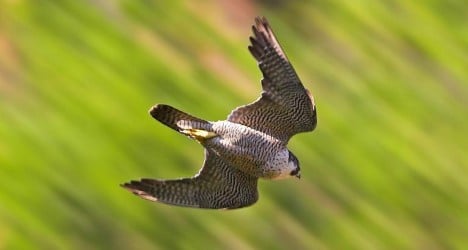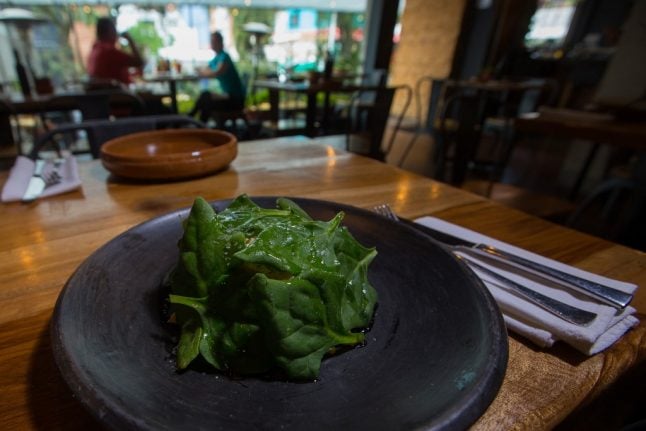The district court in Dielsdorf, near Zurich, convicted the man for various offences including multiple counts of animal cruelty, reported news agency ATS on Monday.
The 42-year-old Swiss pigeon fancier confessed that in August 2015 he spread a banned, illegally-imported pesticide on one of his 200 pigeons and sent it out to fly.
As he intended, the pigeon was caught and eaten by a peregrine falcon – a protected species in Switzerland – which then died an agonizing death from the poison.
Reporting at the time of his arrest, the NZZ newspaper said the man was part of a group of pigeon fanciers in the area who participate in contests to see how long their birds can stay airborne.
The winner gets a cash prize, but those birds who fail to return – perhaps because they have fallen prey to a falcon – are disqualified from the competition.
The conviction is good news for bird protection organization Bird Life Switzerland, which has been trying to uncover the culprits in a spate of such falcon-killings in the Zurich area over the past few years.
After hearing about the issue, the organization erected webcams in various places in Zurich and filmed an incident where a falcon was killed by eating a poisoned pigeon.
Speaking to The Local when the man in the current case was arrested in April, Christa Glauser, deputy CEO of Bird Life said the poisoning of hawks had been “a problem for many years”.
“Especially with peregrines, which reproduce very slowly, it is a huge problem. In some regions the population has been reduced by 50 percent.”
In its judgement the court said the man’s actions put both animals and people at risk, said ATS.
The man’s lawyer argued that his client was only looking to protect his pigeons after they were frequently targeted by falcons and had “lost a sense of proportion” on the issue.
The sentence is not yet finalized, but is likely to be 11 months in prison and a 4,000 franc fine.



 Please whitelist us to continue reading.
Please whitelist us to continue reading.
Member comments